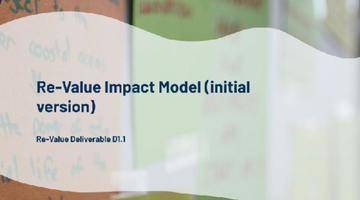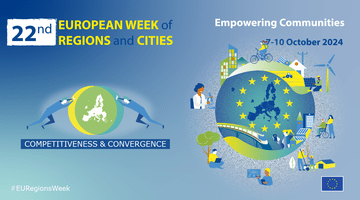Re-Value Impact Model (Initial Version)
Re-Value contributes to the creation of a New European Bauhaus-inspired Impact Model (NEB Impact Model), in cooperation with CrAFt, with 70+ CrAFt Cities, and the NEB-STAR NEB Lighthouse project with Stavanger, Utrecht and Prague. The NEB Impact Model is an autonomous deliverable in each of the three projects, adapted to the specific project scope, and the needs and priorities of the participating cities.

In Re-Value, the cities will use the NEB Impact Model to operationalise and document the co-benefits of simultaneously reducing greenhouse gas emissions and increasing urban quality - for, by and with more groups of inhabitants and professionals, towards six systemic challenges in terms of value-based urban planning and design, aligned with the Cities Mission’s key enablers:
- Systemic changes in governance, regulatory structures, advocacy
- Societal and spatial quality
- Financial and circular value chains
- Data-driven co-creation, digital twins
- Energy and mobility
- Nature-based solutions
Within Re-Value, our target for the NEB Impact Model is to help the Re-Value cities build evidence for how increased quality in urban planning and design can contribute to their ambitions to become climate-neutral and resilient. The Impact Model is intended as a tool to negotiate between different types of stakeholders, priorities and interests, mitigate potential conflicts of interest, and identify potential co-benefits of cross-sectoral measures that will increase the willingness of politicians, property developers, civic communities and other stakeholders to invest in these measures. The Impact Model also aims to help the Re-Value cities identify blind spots and fill gaps in their existing indicator systems, and strengthen their capacity for integrated urban planning and design measures that address technical-environmental as well as social, cultural, governance, quality of life and economic perspectives.
After having tested the Impact Model in their demonstration areas and long-term Territorial Transformation Plans, the ultimate aim is for the Re-Value cities eventually to integrate the Impact Model rationale, Key Performance Indicators and co-benefits into their standard day-to-day procedures, adapt them to local context, and regard it as their own.
This report contains the initial version of Re-Value’s NEB Impact Model for value-based urban planning and design, as of November 2023 (M11). The Impact Model will support Re-Value cities to develop and implement integrated urban planning and design approaches for urban transformation areas that value quality, inclusion, and other non-monetary benefits, in addition to financial and greenhouse gas emission impacts. In this manner, the Impact Model becomes an instrument to support integrated sustainable urban development by providing a whole systems understanding.
Download or read the full report below.

Related projects
Related news
Related events

The sole responsibility for the content of this website lies with the project and in no way reflects the views of the European Union.



